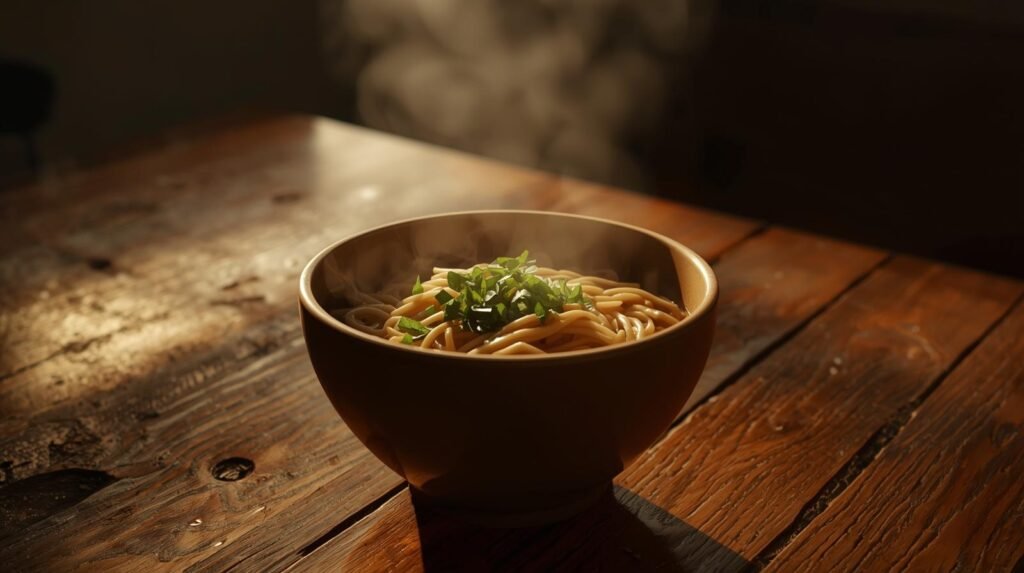
Reading Time: 7 min
Pregnancy brings a whirlwind of surprises, and cravings are one of them. Maggi can be your taste buds’ favourite friend, but its nutritional properties remain questionable. If frequent cravings for Maggi are worrying you, know that many pregnant women feel the same. This article provides practical strategies to help you navigate cravings and make healthier choices.
Is It Safe To Eat Maggi & Pasta in Pregnancy?
“Can pregnant women eat Maggi?” is a question many doctors and nutritionists have been asked. The answer depends on the woman’s health condition, nutritional status, and the frequency and amount of intake. Being aware of the health effects of processed, instant foods before their consumption can help in making the right choice. Here are a few key points to remember when relishing your Maggi cravings during pregnancy.
- Like any other less-nutritious, processed foods, Maggi can be consumed in moderation. Treating your Maggi cravings during pregnancy occasionally is considered safe and unlikely to impart harm. It is not advisable to include instant noodles in the everyday diet.
- Maggi should not be substituted for a nutritious, balanced diet. Ensure to include nutrient-dense foods like whole grains, vegetables, fruits, pulses, fish, nuts, etc., that support a healthy pregnancy. Your overall diet quality greatly influences the growth and development of the fetus.
- Prefer to consume home-cooked Maggi noodles. Home-cooked meals offer the flexibility to select ingredients and control cooking methods, supporting healthier choices. Indulge in your Maggi cravings mindfully by tossing in plenty of vegetables and prefer whole grain noodles to give it a healthier twist.
Does Maggi Masala Contain Ajinomoto?
Maggi is sold with ready-to-cook noodles and a flavour-enhancing powder that adds spice and taste to the noodles. The ingredients in the packet have raised concerns among many, especially for pregnant mothers. The main concern has been around the presence of Ajinomoto or monosodium glutamate (MSG) in the masala powder, which makes many doubt if Maggi is safe in pregnancy. However, reports have made it clear that the Maggi sold in India does not contain the flavour enhancer MSG. The intake of monosodium glutamate during pregnancy is generally regarded as safe by the FDA. However, moderation is key, and women allergic to MSG should skip foods containing it. Other foods that contain MSG include aged cheese like Parmesan, shiitake mushrooms, walnuts, tomatoes, fermented sauces like soy sauce, fish sauce, chips, fast foods, etc. It should be noted that Maggi contains glutamate that is produced from other sources, like onion powder.
The presence of higher concentrations of lead was also raising concerns over Maggi’s intake by pregnant women. However, the company has resolved such issues by modifying the product, and ever since, it has been safe for consumption.
Reading the Nutrition Label of Maggi
Choosing nutrient-dense foods is emphasised during pregnancy to support maternal and fetal health. Most processed or packaged food products contain several ingredients that we may be unaware of, which explains the importance of reading food labels before buying a product.
The nutritional composition of Maggi noodles (per 100g) is as follows.
- Energy: 427 Kcals
- Protein: 8 g
- Carbohydrates: 63.5 g
- Fiber: 3.6 g
- Total fat: 15.7 g (Saturated fat: 6.8 g)
- Sodium: 1172 mg
The composition above portrays that Maggi should be consumed in moderation and less frequently, as the product lacks essential nutrients like vitamins and minerals that play crucial roles in pregnancy. Hence, when asking yourself, “Can I eat Maggi during pregnancy?” remember to read the label and know what ingredients have been used and their nutritional composition.
Side Effects of Eating Maggi During Pregnancy
Imbalanced dietary patterns may impart adverse effects on maternal health and also influence the baby’s development. Nutritional deficiencies can occur due to poor food choices and inadequate intake. Although Maggi is a tasty slurp, it’s important to be aware of certain nutritional concerns before its consumption.
- Sodium content: Intake of foods that are excessively high in sodium is not advised for pregnant women. Going overboard on sodium may raise the risk of swelling in the legs, face, or hands due to water retention. Sticking to moderate sodium intake helps curb the risk of high blood pressure, bloating, and other discomfort.
- Refined flour: Maida or refined wheat is the ingredient used in making the noodles. Consuming refined products may lead to digestive troubles like constipation in pregnancy and should be consumed in moderation. Refined products may also lack vital nutrients like fiber and protein. Although it is safe to eat Maggi during pregnancy, it is advisable to pick whole-grain noodles.
- Preservatives: Like any other processed food, Maggi also contains preservatives. It is advisable to limit the intake of foods with preservatives and other additives during pregnancy.
- Empty calories: The presence of simple carbohydrates and the lack of fiber and protein make it a less-nutritious food. The simple carbohydrates from the refined flour may also increase the risk of glucose spikes. Hence, when eating Maggi during pregnancy, know that every bite may be delicious, but it is often stripped of nutrients, providing mostly empty calories.
Smart Ways to Enjoy Instant Noodles Safely
Cravings are not easy to resist, especially during pregnancy. Your taste buds might be craving a less-nutritious food, while your body might be craving specific nutrients. Here are a few tips to satisfy your Maggi cravings while also upgrading it to a nutritious snack.
- Portion size: Although Maggi is safe during pregnancy, it’s best to limit your intake to small portions. It is also advised not to replace a meal with instant noodles, as it may create an imbalance in meeting your nutritional requirements.
- Prefer unrefined or whole grain noodles: Different ranges of Maggi noodles are available in the market. It is best to choose whole grains or vegetable-based noodles rather than refined products. Refined flour has been known to create digestive issues like constipation among pregnant women, and hence, it is best avoided.
- Step up protein and fiber: Bring a healthy twist to the recipe by tossing in vegetables like carrots, onion, tomato, bell peppers, peas, etc., to increase the fiber, vitamin, and mineral content in your bowl. Protein-rich foods like eggs, paneer, tofu, or lean cuts of meat can also be added, as they also help you feel satiated while getting your nutrients.
- Substitute the masala: Switch to homemade masala powder instead of the seasoning powder, which comes with the pack, as it may be high in sodium and preservatives. Turmeric, chilli, and cumin powder, along with salt, can be used to give it a delicious kick.
Balancing Maggi in a Fertility-Friendly Diet
Among the different food cravings that kick in during pregnancy, Maggi noodles are one of the many less-nutritious cravings. Women who are pregnant or those undergoing fertility treatment for PCOS, hormonal imbalance, etc., should focus on their diet quality and follow a healthy lifestyle. A balanced meal should include carbohydrates from cereals like whole wheat, oats, or whole grain bread; protein sources like lean meat, eggs, cheese, legumes, or dhal; healthy fats from plant-based oils, nuts like almonds, pista; and micronutrients from vegetables and fruits. When pregnant women eat Maggi, it is important to follow a balanced meal pattern while also satisfying their cravings occasionally.
Wrapping Up
The quality of diet during pregnancy lays the foundation for maternal health and the growth and development of the fetus. Increased consumption of processed and ultra-processed foods can negatively impact pregnancy. Studies have indicated increased risk for gestational weight gain, postpartum weight gain, gestational diabetes, preeclampsia, and obesity in the offspring with increased consumption of processed foods. When choosing packaged foods, always remember to read the labels on the back of the pack to understand the ingredients used and their nutritional properties. Occasional consumption of a bowl of Maggi noodles made using the tips discussed above can be a better choice to fulfil cravings during pregnancy. Although Maggi is generally considered safe during pregnancy, it is always advisable to talk to your doctor to know the specific nutritional needs of your body.

